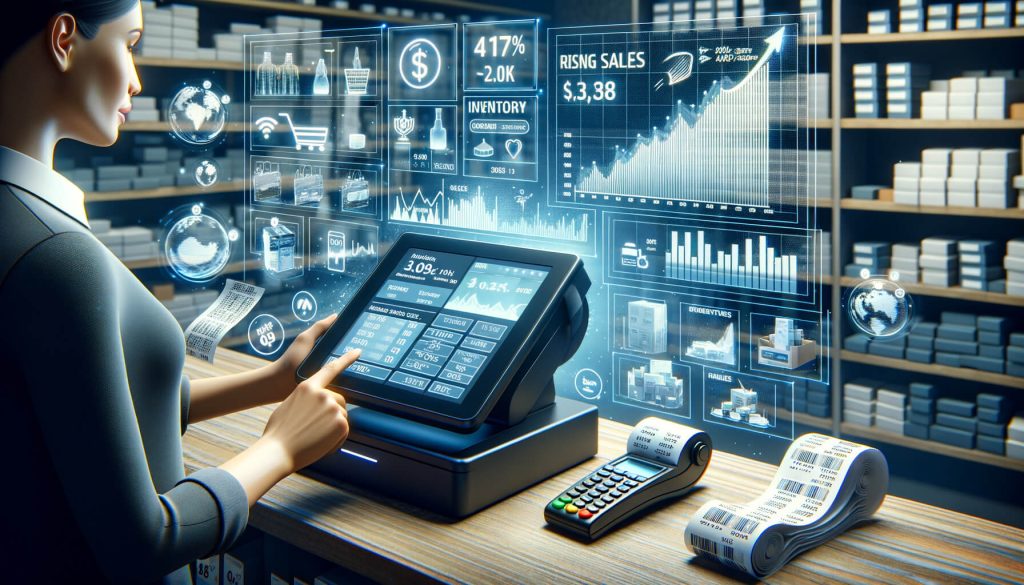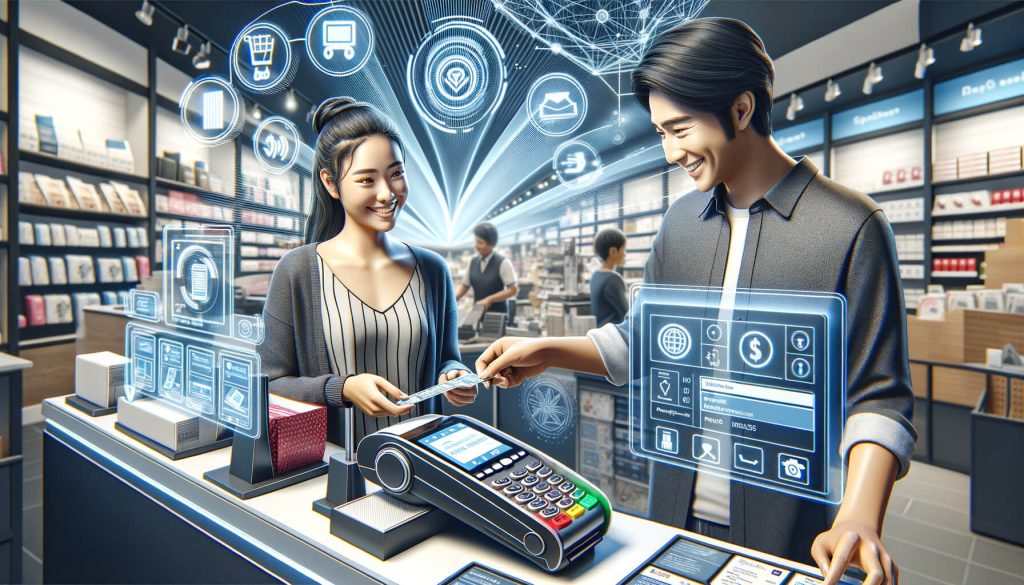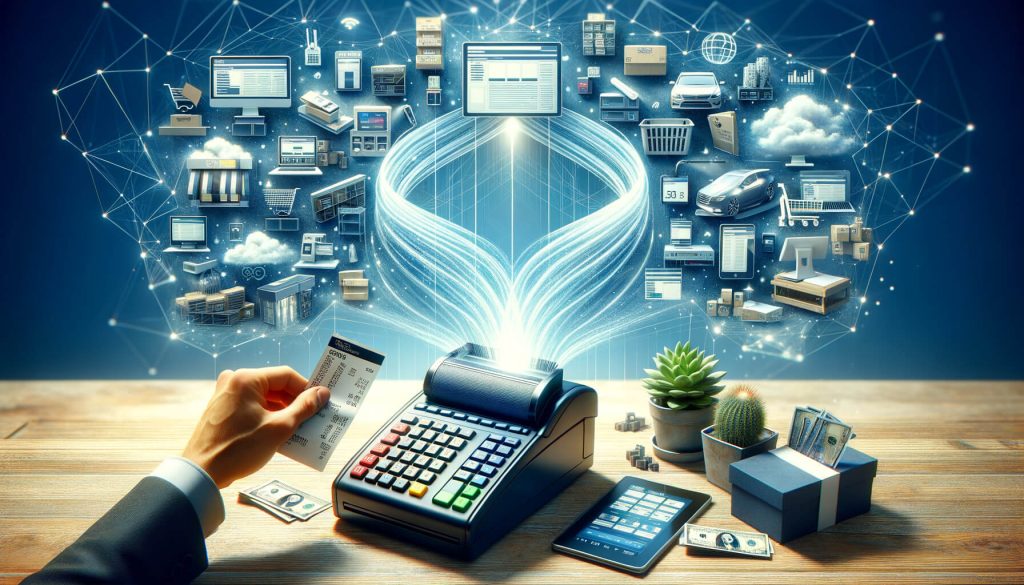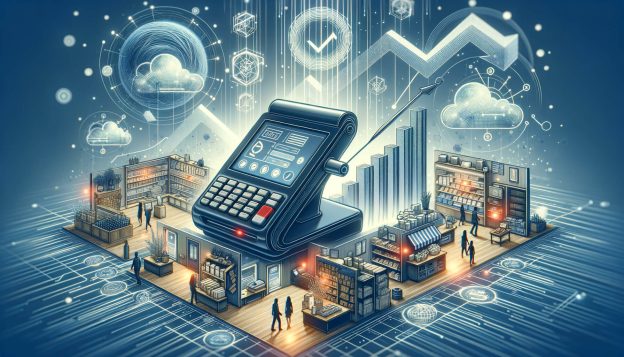In today’s fast-paced business environment, efficiency is key to success. One crucial aspect of achieving efficiency is the implementation of a reliable and effective Point of Sale (POS) system. A POS system is a combination of hardware and software that enables businesses to process transactions, manage inventory, track sales, and streamline various other aspects of their operations.
This article will delve into the role of POS systems in boosting business efficiency, exploring how they streamline sales and inventory management, enhance customer experience, facilitate efficient employee management, enable accurate financial reporting and analysis, integrate with e-commerce platforms, ensure data security and fraud prevention, and facilitate effective marketing and promotions.
How POS Systems Streamline Sales and Inventory Management

One of the primary functions of a POS system is to streamline sales and inventory management processes. With a POS system in place, businesses can efficiently process transactions, track sales, and manage inventory levels. The system allows for real-time updates on stock levels, ensuring that businesses can accurately monitor their inventory and avoid stockouts or overstocking situations. By automating these processes, businesses can save time and reduce the risk of human error.
A POS system also enables businesses to generate detailed sales reports, providing valuable insights into sales trends, top-selling products, and customer preferences. These reports can help businesses make informed decisions regarding inventory management, pricing strategies, and marketing campaigns. By having access to accurate and up-to-date sales data, businesses can optimize their inventory levels, reduce costs, and maximize profitability.
Furthermore, a POS system can streamline the process of managing multiple sales channels. Whether a business operates through a physical store, an online platform, or both, a POS system can integrate all sales channels into a single platform. This integration allows for centralized inventory management, ensuring that businesses have a holistic view of their stock levels across all channels. It also enables businesses to provide a seamless omnichannel experience to their customers, allowing them to make purchases through their preferred channel.
Enhancing Customer Experience through POS Systems

In addition to streamlining sales and inventory management, POS systems play a crucial role in enhancing the overall customer experience. With a POS system, businesses can offer various customer-centric features that improve convenience and satisfaction. For instance, a modern POS system can support multiple payment options, including credit cards, mobile payments, and digital wallets. This flexibility allows customers to choose their preferred payment method, enhancing convenience and reducing friction during the checkout process.
Moreover, a POS system can facilitate personalized customer interactions. By integrating customer relationship management (CRM) functionalities, businesses can access customer profiles, purchase histories, and preferences at the point of sale. This information enables businesses to provide personalized recommendations, discounts, and promotions, creating a tailored shopping experience for each customer. By offering personalized interactions, businesses can build stronger customer relationships, increase customer loyalty, and drive repeat purchases.
Additionally, a POS system can expedite the checkout process, reducing waiting times and improving customer satisfaction. With features such as barcode scanning and integrated payment processing, businesses can streamline the entire transaction process, ensuring quick and efficient checkouts. This not only enhances the customer experience but also increases the overall operational efficiency of the business.
The Role of POS Systems in Efficient Employee Management

Efficient employee management is crucial for the smooth functioning of any business. A POS system can significantly contribute to this aspect by automating various employee-related processes and providing valuable insights into employee performance.
Firstly, a POS system can simplify employee scheduling and time tracking. With a POS system, businesses can create and manage employee schedules, ensuring optimal staffing levels at all times. Employees can easily clock in and out using the POS system, eliminating the need for manual time tracking methods. This automation saves time, reduces administrative tasks, and minimizes errors in payroll processing.
Furthermore, a POS system can provide detailed sales reports that allow businesses to evaluate employee performance. By tracking individual sales, businesses can identify top-performing employees and reward them accordingly. Conversely, businesses can also identify areas where employees may require additional training or support. This data-driven approach to employee management enables businesses to optimize their workforce, improve productivity, and drive sales growth.
Leveraging POS Systems for Accurate Financial Reporting and Analysis
Accurate financial reporting and analysis are essential for businesses to make informed decisions and monitor their financial health. A POS system plays a crucial role in this aspect by automating financial processes and providing real-time insights into sales and revenue.
A POS system can generate detailed sales reports that provide businesses with a comprehensive overview of their financial performance. These reports include information such as total sales, average transaction value, and sales by product category or time period. By having access to this data, businesses can identify trends, evaluate the success of marketing campaigns, and make data-driven decisions to drive revenue growth.
Moreover, a POS system can integrate with accounting software, enabling businesses to streamline their financial processes. By automatically syncing sales data with the accounting system, businesses can eliminate manual data entry, reduce the risk of errors, and save time on financial reconciliation tasks. This integration also ensures that businesses have accurate and up-to-date financial records, facilitating tax compliance and financial reporting.
Integrating POS Systems with E-commerce Platforms for Seamless Operations

In today’s digital age, many businesses operate through both physical stores and e-commerce platforms. Integrating a POS system with e-commerce platforms is crucial for seamless operations and efficient inventory management.
By integrating a POS system with an e-commerce platform, businesses can synchronize their inventory across all sales channels. This integration ensures that businesses have real-time visibility into their stock levels, preventing overselling or stockouts. It also enables businesses to offer features such as click-and-collect or ship-from-store, providing customers with flexible fulfillment options and enhancing the overall shopping experience.
Furthermore, integrating a POS system with an e-commerce platform allows for centralized order management. Businesses can manage all orders, whether they originate from the physical store or the online platform, through a single system. This centralized approach streamlines order processing, reduces the risk of errors, and improves operational efficiency.
Additionally, integrating a POS system with an e-commerce platform enables businesses to provide a seamless omnichannel experience to their customers. Customers can enjoy features such as in-store returns for online purchases or online order pickups at physical stores. This integration eliminates the silos between different sales channels, ensuring a consistent and cohesive brand experience for customers.
Ensuring Data Security and Fraud Prevention with POS Systems
Data security and fraud prevention are critical considerations for businesses, especially when handling sensitive customer information and processing financial transactions. A robust POS system can help businesses mitigate these risks and ensure the security of their operations.
Firstly, a POS system can encrypt customer data, ensuring that sensitive information such as credit card details is protected from unauthorized access. By adhering to industry-standard encryption protocols, businesses can instill trust in their customers and demonstrate their commitment to data security.
Moreover, a POS system can implement various security measures to prevent fraud and unauthorized transactions. For instance, a system can support features such as EMV chip card processing, which provides an additional layer of security compared to traditional magnetic stripe cards. Additionally, a POS system can enable businesses to implement user access controls, ensuring that only authorized personnel can access sensitive functions or data.
Furthermore, a POS system can monitor transactions in real-time, flagging any suspicious activities or anomalies. This proactive approach to fraud prevention allows businesses to take immediate action and minimize potential losses. By leveraging the data captured by the POS system, businesses can also conduct post-transaction analysis to identify patterns or trends that may indicate fraudulent activities.
How POS Systems Facilitate Effective Marketing and Promotions
Marketing and promotions play a crucial role in driving customer acquisition and retention. A POS system can facilitate effective marketing strategies by providing businesses with valuable customer insights and enabling targeted promotions.
By integrating a POS system with a CRM platform, businesses can access customer profiles, purchase histories, and preferences. This information allows businesses to segment their customer base and create targeted marketing campaigns. For example, businesses can send personalized offers or discounts to customers who have previously purchased specific products or spent a certain amount. By tailoring promotions to individual customers, businesses can increase the effectiveness of their marketing efforts and drive higher conversion rates.
Furthermore, a POS system can generate detailed sales reports that provide insights into customer behavior and preferences. By analyzing this data, businesses can identify trends, understand which products are popular among specific customer segments, and adjust their marketing strategies accordingly. For instance, if a particular product category is performing well, businesses can allocate more marketing resources to promote related products or expand their product offerings in that category.
Additionally, a POS system can support loyalty programs and reward schemes. By tracking customer purchases and points accumulation, businesses can incentivize repeat purchases and foster customer loyalty. This not only encourages customers to return but also provides businesses with valuable data on customer preferences and purchasing patterns.
Frequently Asked Questions (FAQs)
Q1: What is a POS system?
A POS system is a combination of hardware and software that enables businesses to process transactions, manage inventory, track sales, and streamline various other aspects of their operations.
Q2: What are the key benefits of using a POS system?
Some key benefits of using a POS system include streamlined sales and inventory management, enhanced customer experience, efficient employee management, accurate financial reporting and analysis, integration with e-commerce platforms, data security and fraud prevention, and effective marketing and promotions.
Q3: Can a POS system integrate with e-commerce platforms?
Yes, a POS system can integrate with e-commerce platforms, allowing businesses to synchronize their inventory, centralize order management, and provide a seamless omnichannel experience to customers.
Q4: How can a POS system enhance employee management?
A POS system can simplify employee scheduling and time tracking, provide insights into employee performance, and automate payroll processing tasks.
Q5: How can a POS system contribute to effective marketing and promotions?
A POS system can provide valuable customer insights, enable targeted marketing campaigns, support loyalty programs, and generate sales reports for data-driven marketing strategies.
Conclusion
In conclusion, a POS system plays a crucial role in boosting business efficiency across various aspects of operations. From streamlining sales and inventory management to enhancing the customer experience, facilitating efficient employee management, enabling accurate financial reporting and analysis, integrating with e-commerce platforms, ensuring data security and fraud prevention, and facilitating effective marketing and promotions, a POS system offers numerous benefits to businesses of all sizes.
By leveraging the power of a reliable and effective POS system, businesses can optimize their operations, drive revenue growth, and stay ahead in today’s competitive business landscape.

